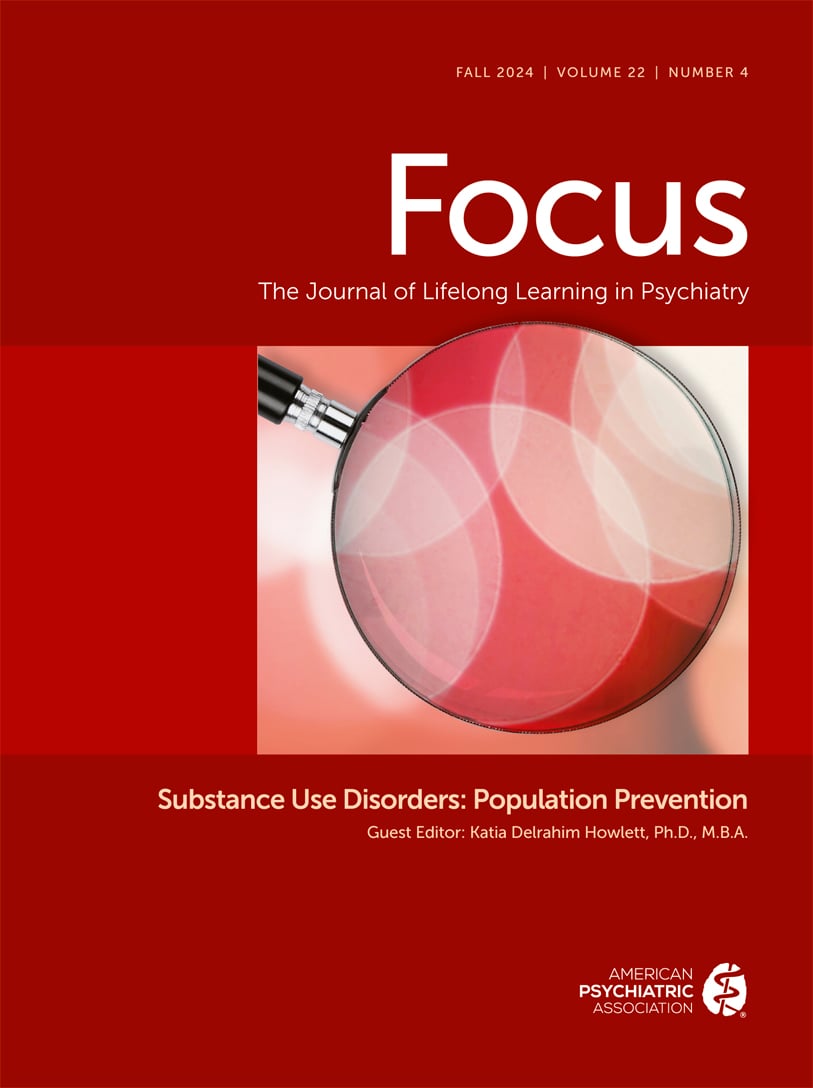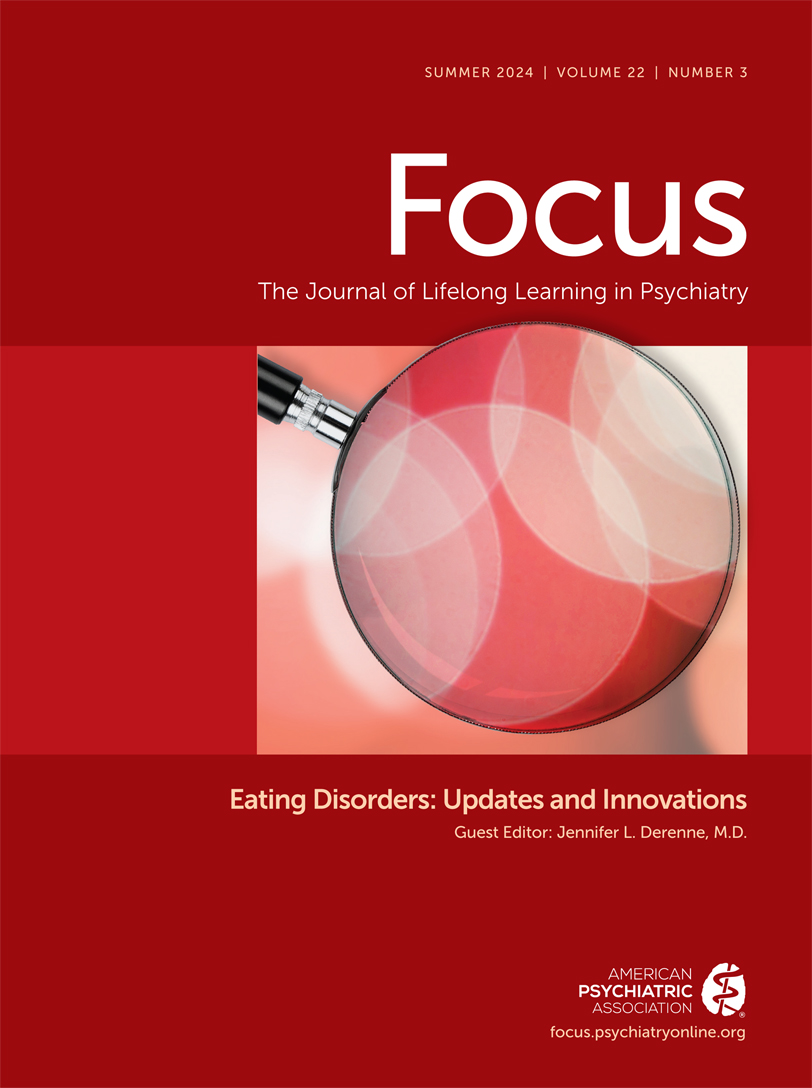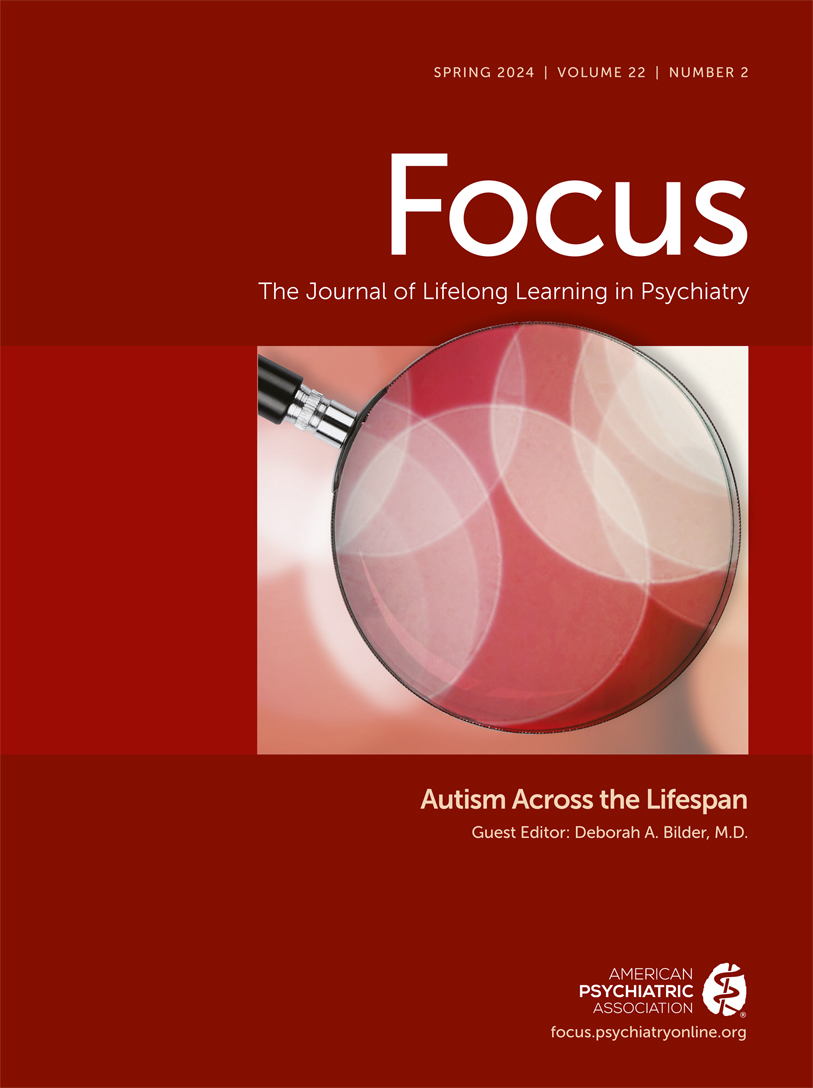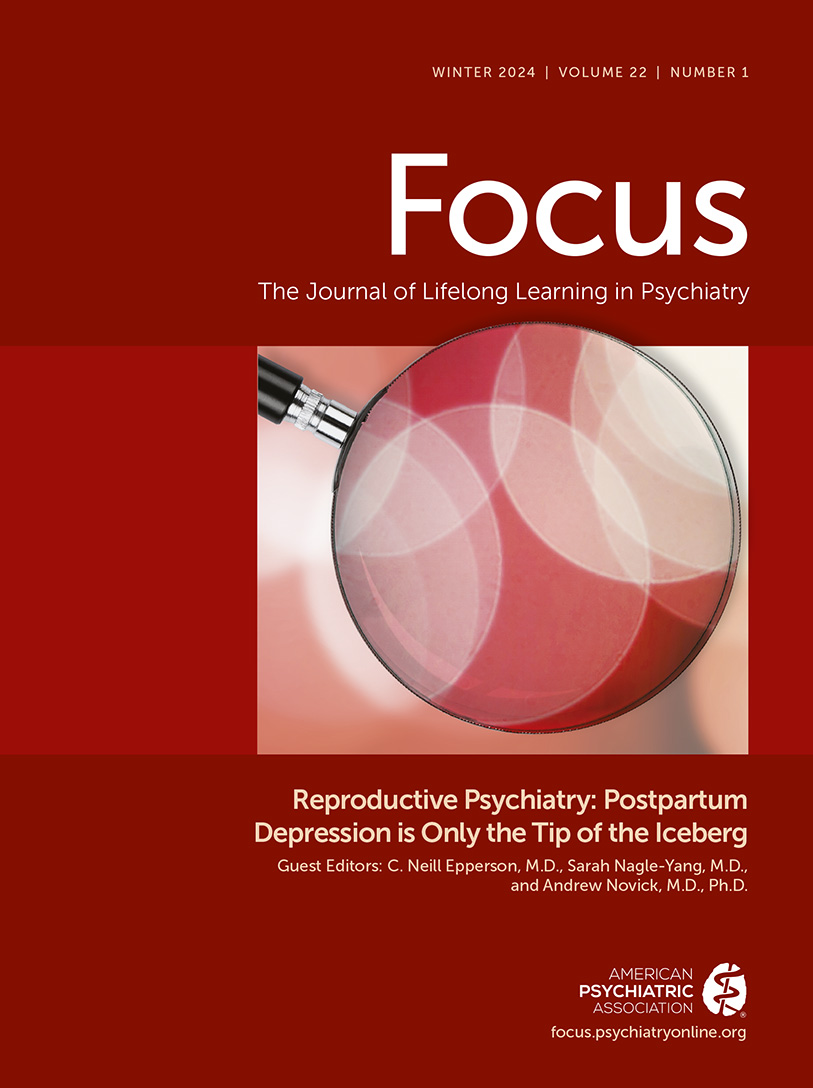Focus
- Volume 21
- Number 2
- April 2023
From the Guest Editor
Reviews
Publication date: 01 April 2023
Pages117–128Suicide remains a leading cause of death in the United States and globally. In this review, epidemiological trends in mortality and suicide risk are presented, with consideration given to the impact of the COVID-19 pandemic. A public health model of ...
https://doi.org/10.1176/appi.focus.20220078Publication date: 01 April 2023
Pages129–136The rising rates of suicide warrant effective treatments that can quickly help stabilize suicidal individuals and prevent future suicidal crises from occurring. Across the past few decades, there has been a rise in the development of ultra-brief (1–4 ...
https://doi.org/10.1176/appi.focus.20220083Publication date: 01 April 2023
Pages137–144Suicide is a leading cause of death that is often preventable. This article reviews the role of medications in treating suicidal behavior and in preventing suicide. For an acute suicidal crisis, ketamine, and perhaps esketamine, are emerging as important ...
https://doi.org/10.1176/appi.focus.20220076Articles
Publication date: 01 April 2023
Pages145–151Early detection of risk is a key suicide prevention strategy. Given that most individuals who die by suicide visit a health care provider in the year leading up to their death, medical settings are ideal venues for identifying those at elevated risk and ...
https://doi.org/10.1176/appi.focus.20220086Publication date: 01 April 2023
Pages152–159Contemporary approaches to suicide prevention extend beyond an individual’s interactions with care providers to seek opportunities for improvement in the wider care system. A systems-based analysis can yield opportunities to improve prevention and ...
https://doi.org/10.1176/appi.focus.2022008121st-Century Psychiatrist
Publication date: 01 April 2023
Pages160–165Smartphone apps offer accessible new tools that may help prevent suicide and that offer support for individuals with active suicidal ideation. Numerous smartphone apps for mental health conditions exist; however, their functionality is limited, and ...
https://doi.org/10.1176/appi.focus.20220073Ask the Expert
Communication Commentary
Ethics Commentary
Bibliography
Abstracts
Influential Publications
Publication date: 01 April 2023
Pages182–196Objective: The authors sought to identify scalable evidence-based suicide prevention strategies. Methods: A search of PubMed and Google Scholar identi- fied 20,234 articles published between September 2005 and December 2019, of which 97 were randomized ...
https://doi.org/10.1176/appi.focus.23021004Publication date: 01 April 2023
Pages197–208Background: Suicide is a public health crisis. We conducted a systematic review and meta-analysis of the effects of psychopharmacologic and somatic therapies on suicide risk. Methods: A systematic search of MEDLINE for studies evaluating the effects of ...
https://doi.org/10.1176/appi.focus.23021006Publication date: 01 April 2023
Pages209–216Background: Suicide is a leading cause of death globally in youths, and suicidal behavior and self-harm are major clinical concerns. This article updates the previous practitioner review (2012) with the aims of integrating new research evidence, including ...
https://doi.org/10.1176/appi.focus.23021005Assessment of Selective and Universal Screening for Suicide Risk in a Pediatric Emergency Department
Publication date: 01 April 2023
Pages217–224Importance: According to National Patient Safety Goal 15.01.01, all individuals being treated or evaluated for behavioral health conditions as their primary reason for care in hospitals and behavioral ...
https://doi.org/10.1176/appi.focus.23021007Publication date: 01 April 2023
Pages225–232We summarize outcomes for several pharmacologic and neurostimulatory approaches that have been considered potential treatments to reduce suicide risk, namely, by reducing suicide deaths, attempts, and ideation in various clinical populations. Available ...
https://doi.org/10.1176/appi.focus.23021003Past Issues
View Issues Archive
Vol. 22 | No. 4

Vol. 22 | No. 3

Vol. 22 | No. 2
